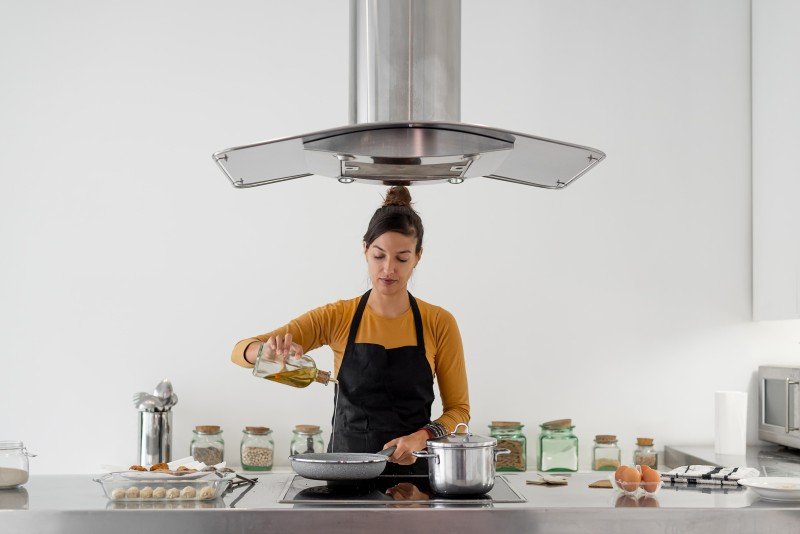Question: How Much Do You Know About Hob And Oven?
Understanding Cooker Hobs and Ovens: A Comprehensive Guide
In contemporary kitchen areas, cooker hobs and ovens are essential appliances that define cooking practices and choices. Selecting the right mix of these devices can significantly improve culinary experience, enhance performance, and even raise home visual appeals. This post will explore various aspects of cooker hobs and ovens, clarifying types, features, benefits, and upkeep ideas, while likewise addressing typical inquiries.
Kinds Of Cooker Hobs
Cooker hobs come in various types, each with special functions catering to various cooking styles. Here's an overview of the most common types:
Type
Description
Pros
Cons
Gas Hob
Uses burner for heating; offers instant temperature level control.
Immediate heat and outstanding control.
Requires a gas connection; might be less safe.
Electric Hob
Operates using electric coils or smooth surface area; heats up slowly.
Even heat circulation; simple to clean.
Takes longer to heat up; less control.
Induction Hob
Utilizes electromagnetic fields to heat pots straight, making it energy efficient.
Fast cooking; energy-efficient.
Requires compatible cookware; more costly.
Halogen Hob
Employs halogen bulbs for immediate heat; supplies immediate temperature level change.
Exceptionally quick heating; noticeable heat.
Takes in more power; might not equally heat.
Selecting the Right Hob
When selecting a hob, think about the following elements:
- Cooking Style: Do you prefer the accuracy of gas, the benefit of electric, or the effectiveness of induction?
- Pots and pans Compatibility: Ensure your pots and pans are suitable with the type of hob.
- Kitchen Layout: Space and style frequently determine the type of hob that suits your kitchen.
Types of Ovens
Likewise, ovens have actually evolved considerably, offering numerous cooking approaches that can complement particular culinary designs. Here are the prevalent types of ovens:
Type
Description
Pros
Cons
Conventional Oven
Conventional baking oven that uses electric or gas heat from the top and bottom.
Versatile; helpful for baking.
Longer preheat and cooking times.
Convection Oven
Utilizes a fan to distribute hot air, enabling even cooking and quicker baking times. Disperses heat equally.
Faster cooking; even browning.
A little more expensive; might dry food out.
Steam Oven
Cooks food utilizing steam, preserving nutrients and wetness.
Healthier cooking; retains food flavor.
Takes longer to cook; more pricey.
Microwave Oven
Uses electro-magnetic radiation to heat food quickly.
Immediate cooking; perfect for reheating.
Minimal cooking methods; might affect texture.
Picking the Perfect Oven
When choosing an oven, keep these consider mind:
- Cooking Habits: Are you a regular baker or most likely to reheat leftovers?
- Area Requirements: What are the measurements of your kitchen?
- Spending plan: Consider not simply the purchase price but also energy effectiveness with time.
The Importance of Cooker Hobs and Ovens in Cooking
The ideal mix of cooker hob and oven can enhance culinary skills, allowing food enthusiasts to experiment and develop a wide variety of meals. Here are a couple of reasons these home appliances are essential:
- Efficiency: Modern hobs and ovens come with features that optimize cooking energy and times use.
- Adaptability: Different cooking methods (bake, grill, roast, steam, etc) expand the variety of dishes one can prepare.
- Aesthetic Appeal: Stylish designs can elevate the general appearance of a kitchen, making it both practical and welcoming.
Often Asked Questions (FAQs)
1. What maintenance do cooker hobs and ovens require?
- Regular cleaning after usage to prevent buildup.
- Routine look for gas leakages (for gas hobs).
- Making sure the electrical connections are protected.
2. Can I utilize any cookware on an induction hob?
No, induction hobs need ferrous cookware (i.e., magnetic) to function. This suggests stainless-steel and cast iron work, while glass and aluminum pots might not.
3. How do Ovens And Hobs identify the best size oven for my kitchen?
Measure your offered area and think about the volume of cooking you typically carry out. Requirement ovens vary in size, and bigger designs typically have additional features.
4. Are stove much better than standard ovens?
It depends upon individual choice. Stove offer faster and more even cooking but may not be perfect for all baking dishes, particularly those requiring particular temperature levels.
5. What is the typical life-span of a cooking hob and oven?
With appropriate care, both hobs and ovens can last anywhere from 10 to 20 years, depending on frequency of usage and upkeep.
Picking the right cooker hob and oven not only streamlines the cooking process however can likewise redefine one's culinary experience. Comprehending the different types, their advantages, and maintenance will empower customers to make educated decisions, guaranteeing that their kitchen is equipped to handle meals from the simplest to the most fancy. Knowledge about the abilities of these essential home appliances enables culinary imagination and performance, eventually leading to a more enjoyable cooking journey.
